DBN Gogo are among a generation of female artists who propelled themselves to stardom, often using their own social media leverage instead of relying on the traditionally male ‘middlemen’, managers.
Photos: Oupa Bopape/
Gallo Images
The second coming of kwaito. That is how amapiano has been dubbed by the streets. The thick basslines, the slow tempo that yearns for pantsula moves, the kwaito style of rapping and deep connection to the kasi lifestyle, are some of the traits the two genres share.
“When you see the younger generation sampling what we did, the music lives on,” said kwaito pioneer Oskido, explaining the connection in Spotify’s mini-documentary, Freedom Sounds: From Kwaito to AmaPiano.
Society — and the music industry — has come a long way since the days Boom Shaka woke us up to the fact that it was about time to take a listen to their ground-breaking sounds. In kwaito and house, women artists were reduced to dancers and guest features, often going uncredited for the songs they contributed to.
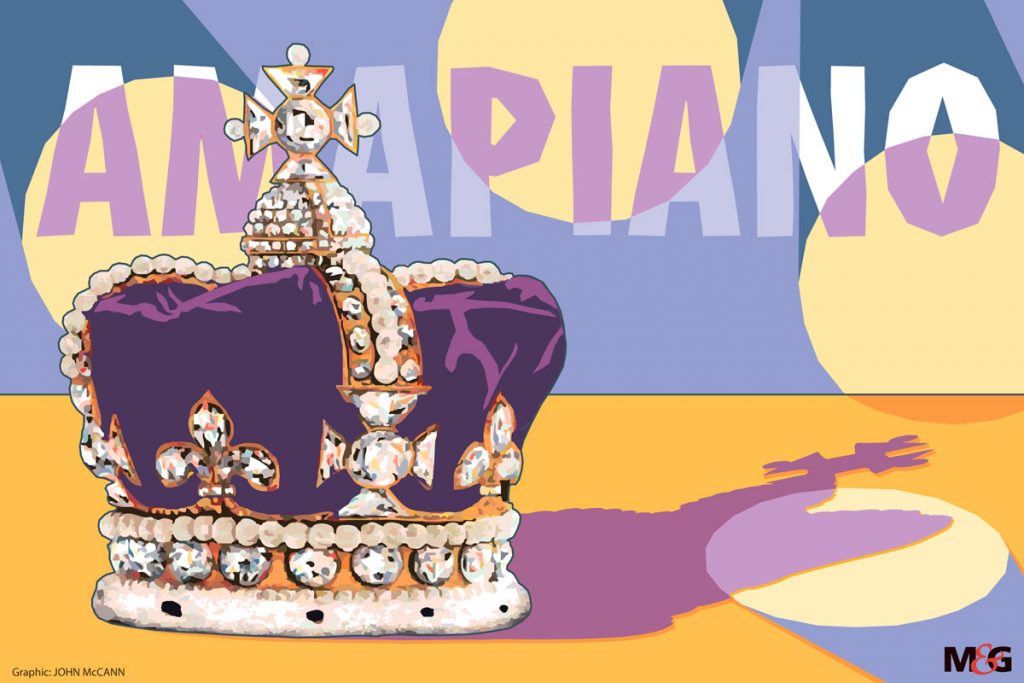
Amapiano has come a long way since its humble beginnings in the townships of Alexandra and the East Rand. From 2019 to the pandemic era we’re living in, the genre has become the global popular music synonymous with South Africa.
The popular genre has been propelled by a vanguard of artists, producers and DJs, largely male. And it comes with a refreshingly large number of female artists at the forefront, unlike other South African dance music genres such as Afro-house, gqom and even kwaito.
DBN Gogo, who recently performed at the Coachella music festival, is one of the front runners of amapiano, taking the genre from the dusty streets of Mzansi townships to the Instagram pages of Oscar winners such as Viola Davis. Uma kaMa, as DBN Gogo calls herself, has contributed to the growth of the genre by making power moves that continue to strengthen her brand. Other than Coachella, she has sold out venues in the United Kingdom and released mega hits such as Khuza Gogo, Dakiwe and Possible. In her February 2021 Glamour cover story, the producer and DJ affirmed that “the rise of female DJs reflects an era of representation and inclusivity”.
The rise of female DJs reflects an era of representation and inclusivity
– DBN Gogo
The sound has grown in popularity in many parts of the continent and abroad, especially in the UK. International African stars such as Davido and Burna Boy have jumped onto the bandwagon, helping pollinate the genre around the world. It’s no doubt a cause for celebration, but the benefactors not being South African artists has raised some concerns among local artists and fans.
Conversations about ownership of the genre first arose in August 2021 when UK singer Jorjia Smith released her amapiano single All of This, produced by Ghana’s GuiltyBeatz. In response DJ Maphorisa tweeted, “If you don’t involve us, it’s not amapiano. Then trust me you can’t eat alone on amapiano, it’s a community movement but we don’t mind sharing though.”
DBN Gogo weighed in: “Amapiano hasn’t even tasted the top 10 in global charts but we must allow people to come dilute and run with the sound so it can grow? What then happens to the pioneers?”
The Trailblazer: Kamo Mphela
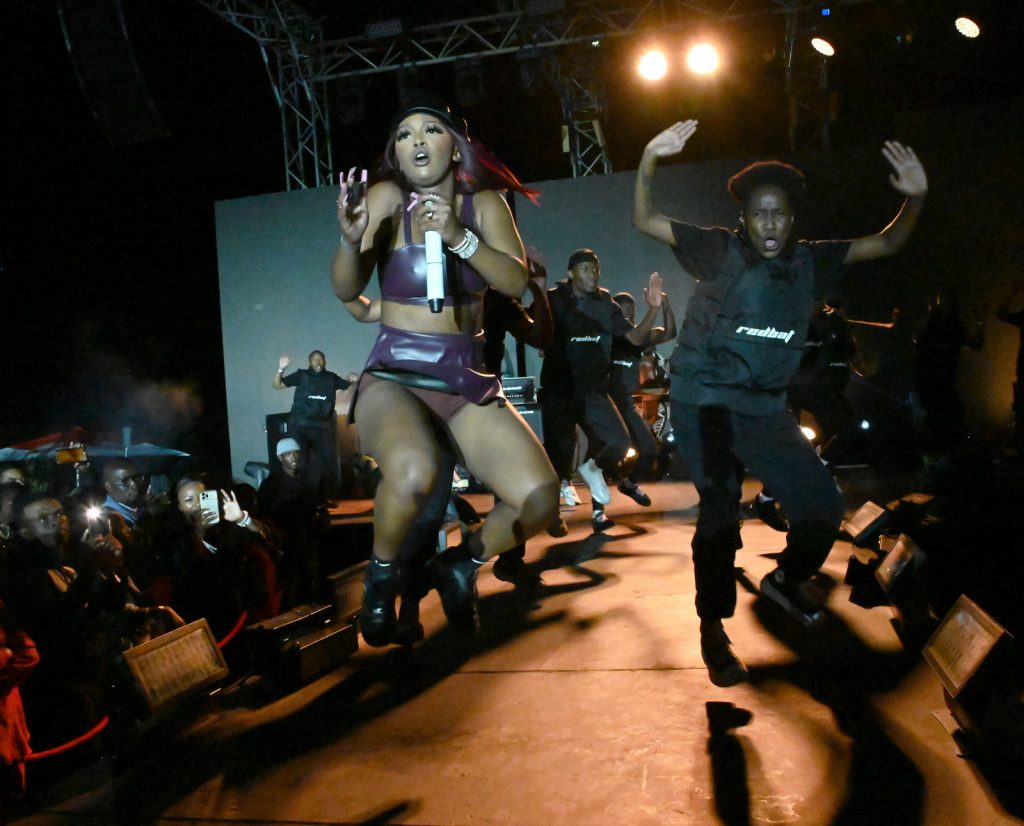 Kamo Mphela. (All photos: Oupa Bopape/
Kamo Mphela. (All photos: Oupa Bopape/
Gallo Images)
The amapiano pathfinder was Kamo Mphela, who built her name as a dancer online before branching out to becoming a musician, making her debut on Jobe London’s 2019 hit Sukendleleni. She soon contributed to other songs and later released her own monster hits such as Nkulunkulu and Dubai. Kamo Mphela was awarded the Artist of the Year trophy at the inaugural South African Amapiano Awards in 2021.
At the same awards, dancer Hope Ramafalo won Best Amapiano Street Dancer. It wouldn’t be a surprise if she follows in the footsteps of Kamo Mphela, Pabi Cooper and Khayisa. Today, through the gateway that is social media, women artists who are usually side-lined, undermined and treated unfairly in the music industry, are now able to bypass the middlemen.
Go viral
But, amapiano exists in a different time when women are also deejays, producers and proficient lyricists. A number of female kwaito artists have admitted to Brenda Fassie being their muse. Amapiano artists usually bring up the late Lebo Mathosa as theirs. Mathosa, like Fassie before her, created and existed on her own terms. “Lebo is actually my number one,” Uncle Waffles said in Freedom Sounds. “This unapologetic, vibrant woman, living her best life … She was very … just herself, and that’s who I think I took a lot from.”
https://www.youtube.com/watch?v=cUZUdFqLhXs
Uncle Waffle’s ascension to superstardom — through a viral clip of her burning a hole on the dancefloor to Young Stunna’s Adiwele — is the stuff of social media influencers’ wildest dreams of the candle emoji and synchronicity manifestations.
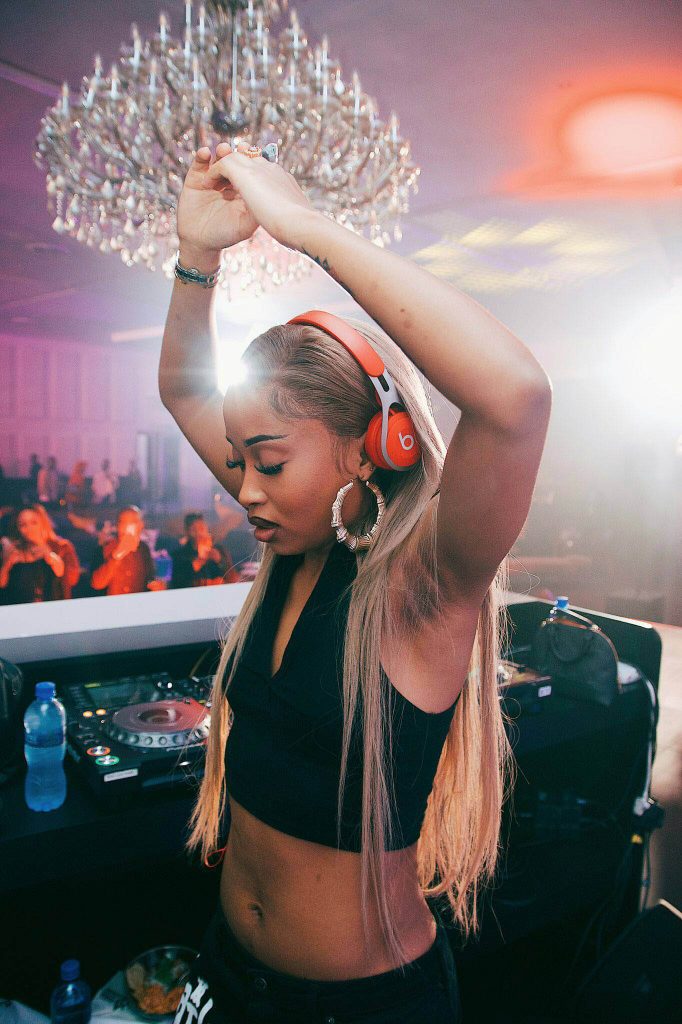 Uncle Waffles
Uncle Waffles
After becoming a globetrotting DJ almost instantly after that viral video shared in November 2021, Uncle Waffles has ventured into production. She recently released her debut EP Red Dragon, which features her hit song Tanzania.
In a recent interview with the US music and culture website Complex, she explained her venture into production: “There were lots of late nights in between gigs and bookings where I would experiment and understand how I wanted to express myself, in order to hone my sound and musical direction.”
The amapiano convention
Amapiano singer-producer pairings are popular and have assisted in growing artists’ brands. Producers and instrumentalists are always listed as features. South African Amapiano Awards Best Vocalist winner Boohle’s 2021 debut EP Sifikile showed an artist defining her sound. Hers and other amapiano artists’ case is the opposite of the biggest woman gqom artist, Babes Wodumo, who seems joined at the hip with the veteran Durban kwaito artist Mampintsha, who is now her husband. He appears on the majority of songs in her two albums, 2016’s Gqom Queen, Vol 1 and 2020’s Idando Kazi. After Mampintsha made an appearance on Babes Wodumo’s verse on the Black Panther soundtrack in 2018, it was facetiously declared that Babes Wodumo was actually a duo.
From TikTok to the charts
The high number of women stars in the genre is also owed to the permeable nature of the scene. It’s now a cliche that “there are no gatekeepers in amapiano” — going viral gives artists enough momentum to surpass the tedious process of climbing the music industry’s treacherous ladder.
A viral song and dance sequence can, overnight, thrust an artist from obscurity to Rihanna doing their dance move at the Grammys. This disruptive process can sometimes be too much for fans and critics to stomach. For instance, Uncle Waffles has been called an industry plant and a gimmick because of her unorthodox and seemingly meteoric ascent. Many have questioned her skills on the wheels of steel (she’s honestly an okay DJ), surmising that her popularity is owed chiefly to her racy dress sense and undulating dance moves.
I’m the TikToker who’s now on TV
– Pabi Cooper
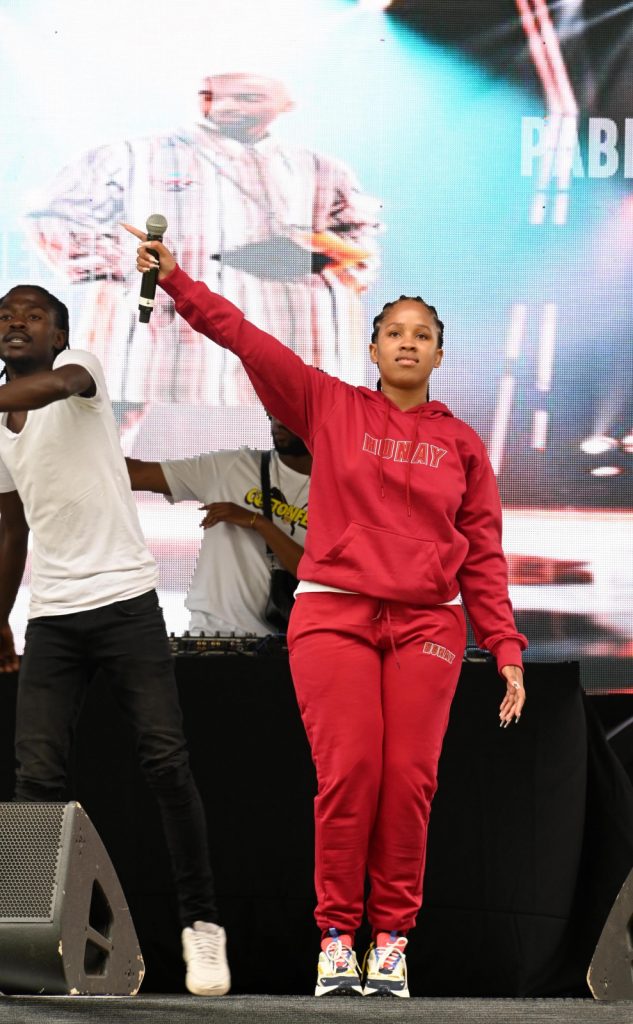 Pabi Cooper
Pabi Cooper
There may be some truth to that criticism, but these critics must brace themselves to consume innumerable pieces of humble pie. Social media is replacing demos and years of operating on the fringes of the industry. It can launch a career. Someone like Uncle Waffles can make it in one viral moment, while other artists spend years building their brands through consistent content production and only pivot to music after racking up followers on social media. Popular music is a double edged sword.
One of amapiano’s newest stars, Pabi Cooper (aka Paballo Basetsana Mothapo), took that route. In 2020, then forging a career as a soccer referee, Mothapo found herself at a crossroads when sporting events were banned during the lockdown. Like many people, she took to creating content in the form of dance videos for social media under the alias Cooper Pabi. She recently explained during a KAYA FM interview that “Pabi Cooper is the musician, Cooper Pabi the influencer”.
In 2021, she released her first single, Isiphithiphithi. Her followers (about 700 000 at the time) streamed the song to platinum certification a few months later. In March, the 21-year-old made history when she became the first female artist to sell-out Diepkloof’s popular Zone 6 Venue, which has hosted shows featuring mega dancefloor fillers such as AKA and Black Coffee.
Pabi Cooper- Isiphithiphithi music video
Pabi Cooper’s rite of passage was dance, but other kinds of content has been credited with leading to a career in music. Today, young people are slashers by default — content creator slash deejay slash influencer slash. For Khanyisa Jaceni, who performs under her first name, the journey started from TikTok comedy skits.
After appearing on Scorpion Kings’ 2019 debut album on the bonus track Jikeleza, she was disappointed by the song’s failure to put her on the map. “I started introducing myself on Twitter saying, ‘Hey guys it’s me on that song.’ It got to a point where I was like, I want people to know me, so I started making skits. I started putting myself out there, being a funny girl,” Jaceni said during a panel discussion in 2021 on amapiano at the Music In Africa Conference for Collaborations, Exchange and Showcases.
She had established herself as a content creator when she decided to share with her followers that, by the way, she was also a musician. Jaceni then started sharing her music with the 200 000 eyes following her, and whose attention she had captured with her humorous content. Khanyisa worked on Ungangi Bambi with Mr JazziQ, a song that took her career where Jikeleza had failed, and released her solo EP titled Soft towards the end of 2021. “It was a catalyst to my music,” said Jaceni about the role social media played in her trajectory. “I’m the TikToker who’s now on TV.”
It’s still not a woman’s world
Those challenges, though rare or kept under the wraps in the case of amapiano, still exist. Amapiano superstar Lady Du has made claims of having been robbed of funds due to her by her management.
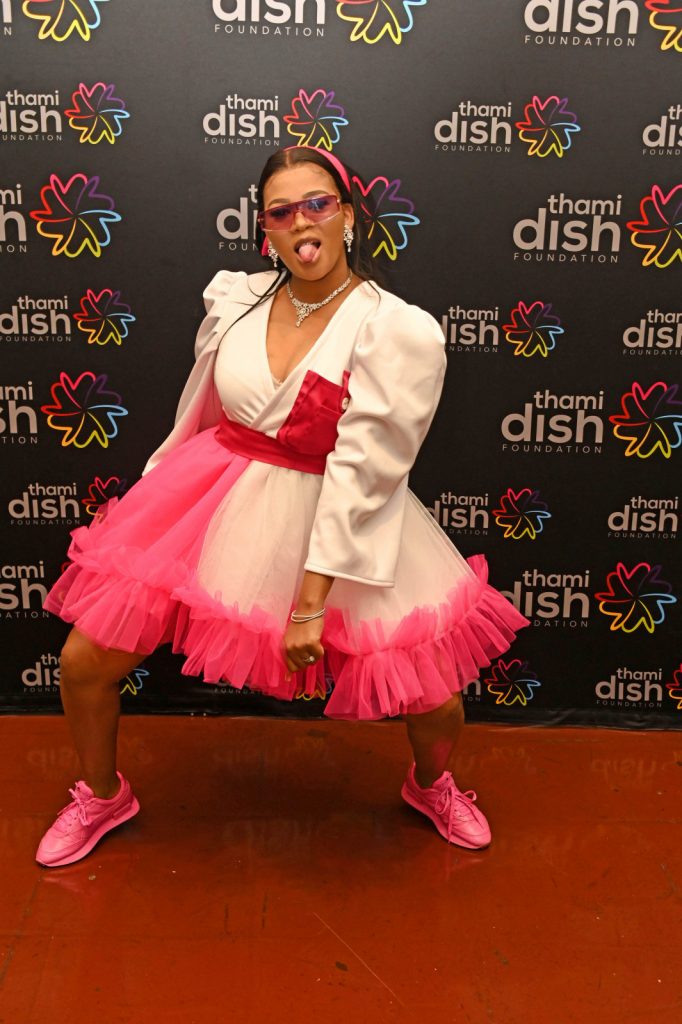 Lady Du
Lady Du
“My manager,” she tweeted in February, “is telling people I’m unavailable for bookings. He says he doesn’t work on weekends and doesn’t pay me on time.” She said she cursed the day she signed her management contract.
Lady Du is one of amapiano’s powerful voices. Her childlike delivery of amapiano / kwaito-style raps and her proficient lyricism have set her apart as displayed on Woza, a collaboration with Mr JazziQ, Kabza De Small and Boohle and Dakiwe (with DBN Gogo, Mr JazziQ, Seekay and Busta 929), among other hits.
It seems the days of shady management are behind her, because, as she recently said on Twitter that amapiano bought her a house and six cars. “I owe nothing on my cars,” she said.
In an Instagram post in February announcing her departure from the deal, she gave her reasons for dealing with the issue publicly. “[Artists] go through sooo much in this industry,” she wrote, “These new age amapiano kids need a person that will actually be transparent so they see the industry isn’t as easy as it looks.”
The industry is still cruel to artists, and it’s known that women are often dealt the worst hand. But the amapiano way is shaking the tree a little by creating a path for many women.
[/membership]